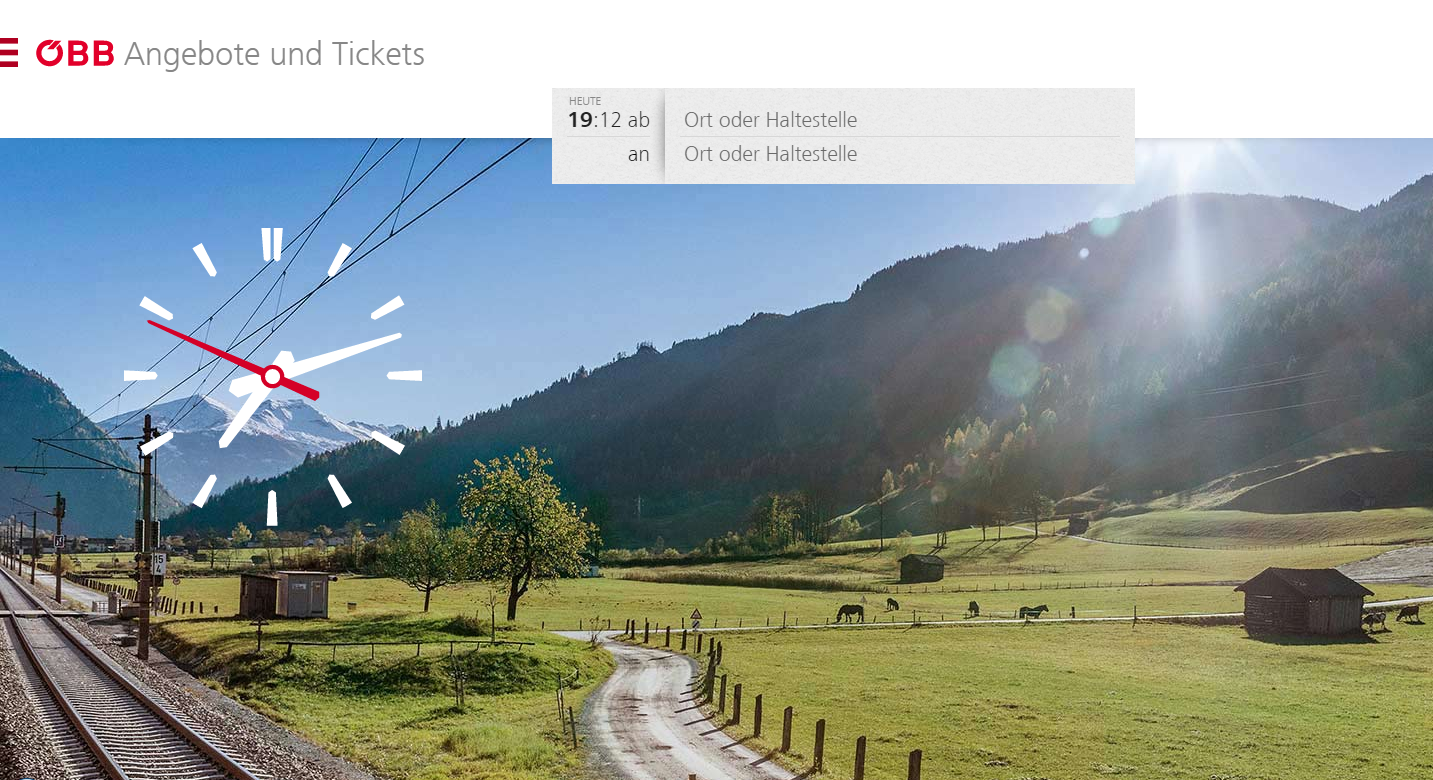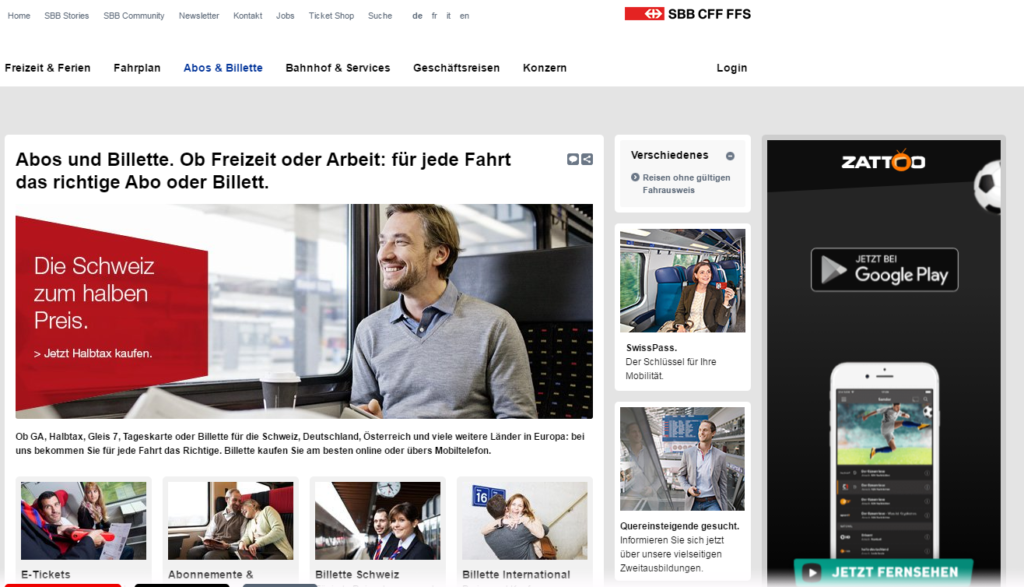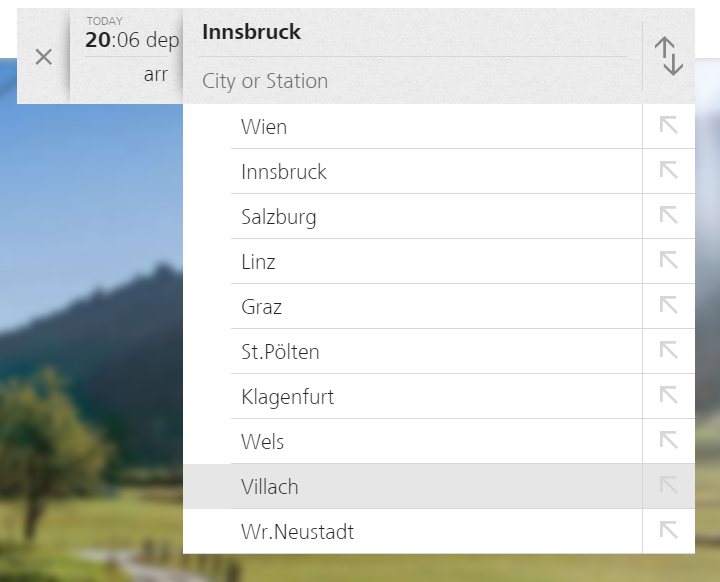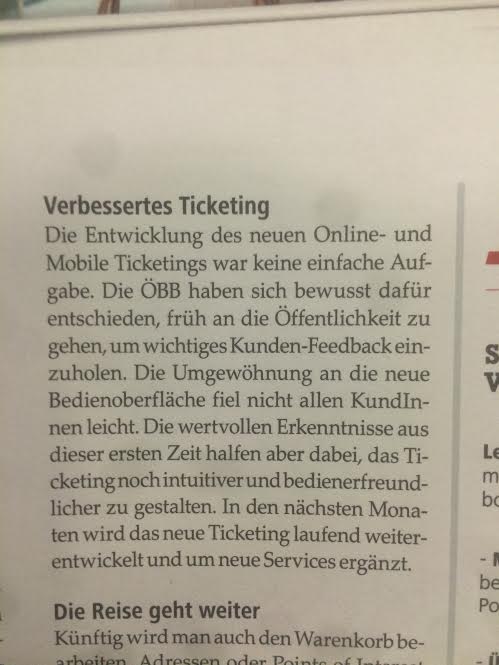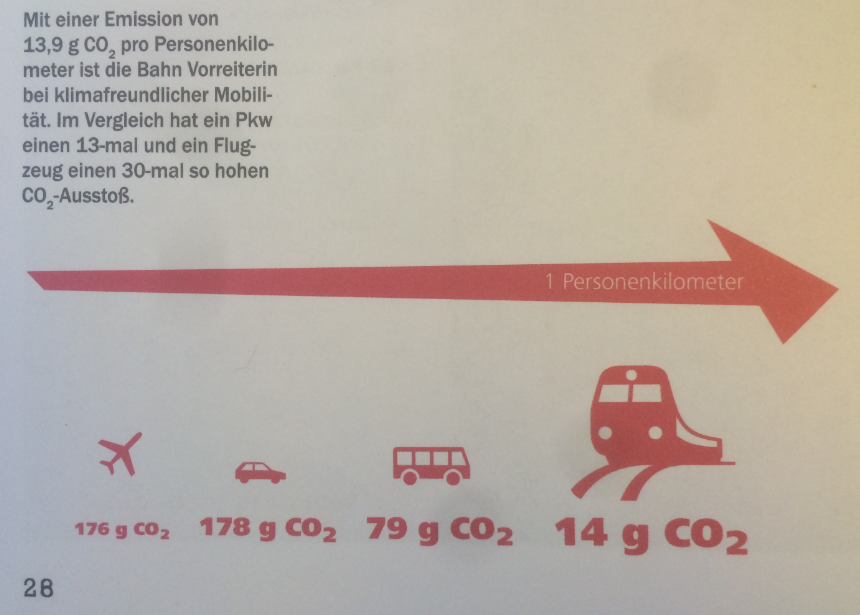It’s been quite some time since my last trip by train. Recently I went from Vienna to Vorarlberg and although the time for the trip has been reduced over the years, it still takes 6 hours, enough time to contemplate some impressions from the digital experience that is offered by the ÖBB.
The above screenshot shows ÖBB’s ticketing website on a desktop screen. It’s no longer a mobile first approach, it’s a mobile everything approach.
Interaction on the mobile screen is so much easier and more efficient than the oldfashioned options-everywhere show-off what we got way of doing bigger screen designs. It is logical and practically common sense to extend the mobile design beyond smaller devices.
Compare with neighbouring Swiss Railways SBB:
Besides the strange idea to place a google ad for something else to buy on a ticketing page the overall impression is familiar but hopelessly outdated – at least in comparison to the ÖBB site. How old fashioned do two layers of navigation look in a tiny fontsize, and what exactly is the sense behind teasers teasing the user into what? Buying tickets for a trip from A to B?
Enter the functionality from the ÖBB site:
Getting the relevant information instantly when it is requested. Everything else ist out of sight but just one click away via a neat burger menu:
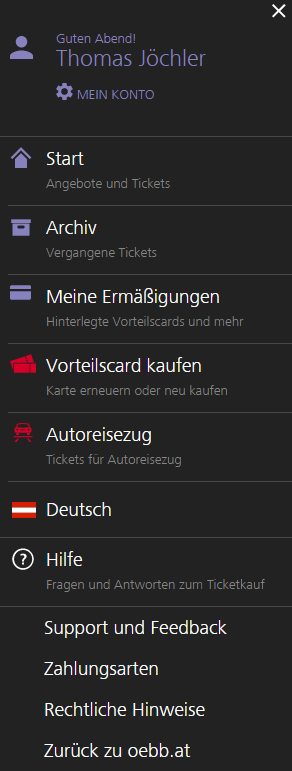 Clean Icons, Frutiger Next as the corporate font guiding the way to secondary usecases and personalised history of previous purchases (hello frequent customer).
Clean Icons, Frutiger Next as the corporate font guiding the way to secondary usecases and personalised history of previous purchases (hello frequent customer).
The overall experience on the desktop is a reminder that mobile & touch have blown apart the old fashioned fixed width designs, stuffed to death by boxes, filled with content and noise.
It is a design that helps the customer getting the job done.
The digital experience doesn’t end here. Once you get on the train (a Railjet in my case) you find a free WIFI that is actually working really well with very few interuptions and good enough bandwith for watching The Magnificent Seven on Netflix.
The printed onboard magazine makes it clear, that the digital agenda at ÖBB is a strategic goal and going to the core of the business case. Still it is uncommon to report from a beta phase with critical feedback in your own corporate publication, but it shows the commitment to a deeprooting change and a usercentered approach.
Just a small detail with some room for improvement is this infographic in the onboard magazine:
The highlighted factor is the reduction von gram CO² – but the order, the arrow and the pictograms show a ascending tendency when a descending order would be more correct. A good old fashioned bar chart would be much better…
But besides that last note from my other self as a lector on datajournalism the overall digital and design experience on the whole customer journey was unawaited and impressive. 21st century, here we go.
